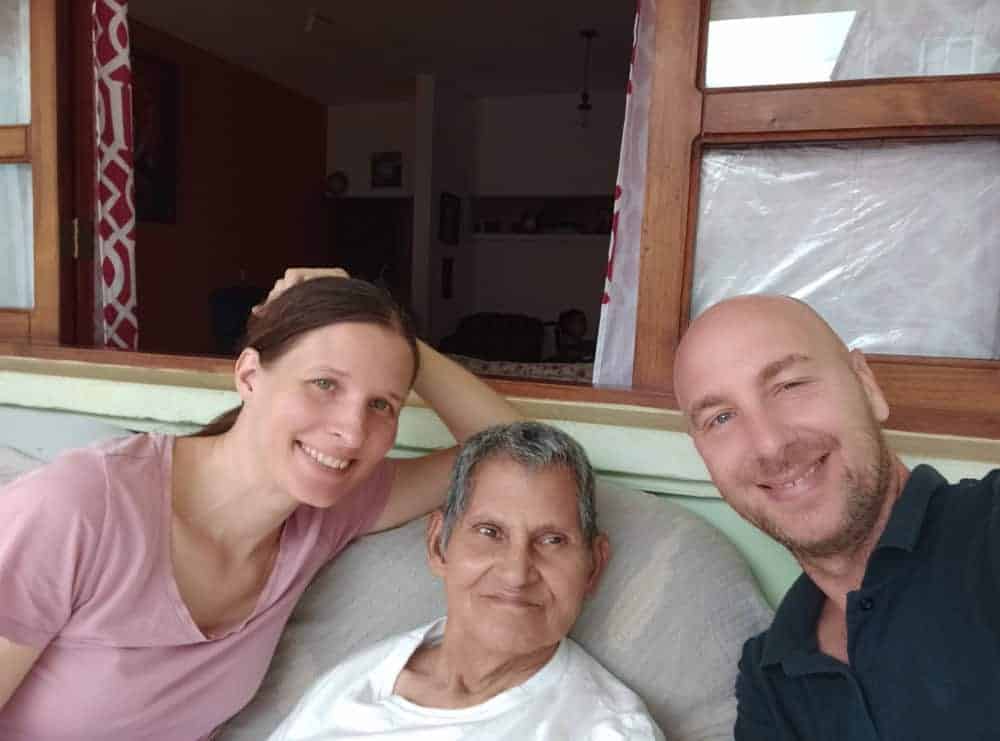A few days after the murders on the streets of Riosucio, after the innocent boys were buried and the missionaries began a nine-day mourning period for them, the people in the settlement were again shocked.
We were at breakfast, us, Alvaro, and missionary Dagomberto, who is leaving for another Colombian mission after five years in Riosucio.
Alvaro said a ‘pamphlet’ had been issued today announcing possible new attacks and casualties to the people in Riosucio.
Fear and confusion
The announcement was issued by terrorists or paramilitaries who control this settlement. Basically nothing new for the people here (the last announcement was released half a year ago), but it always achieves its purpose – it creates fear and confusion among the people because they know what the result can be.
The message was instantly circulated among the people (20,000 of them live in Riosucio), that day it was just talked about.
To give you a better idea, here is a photo of this message and below its translation.
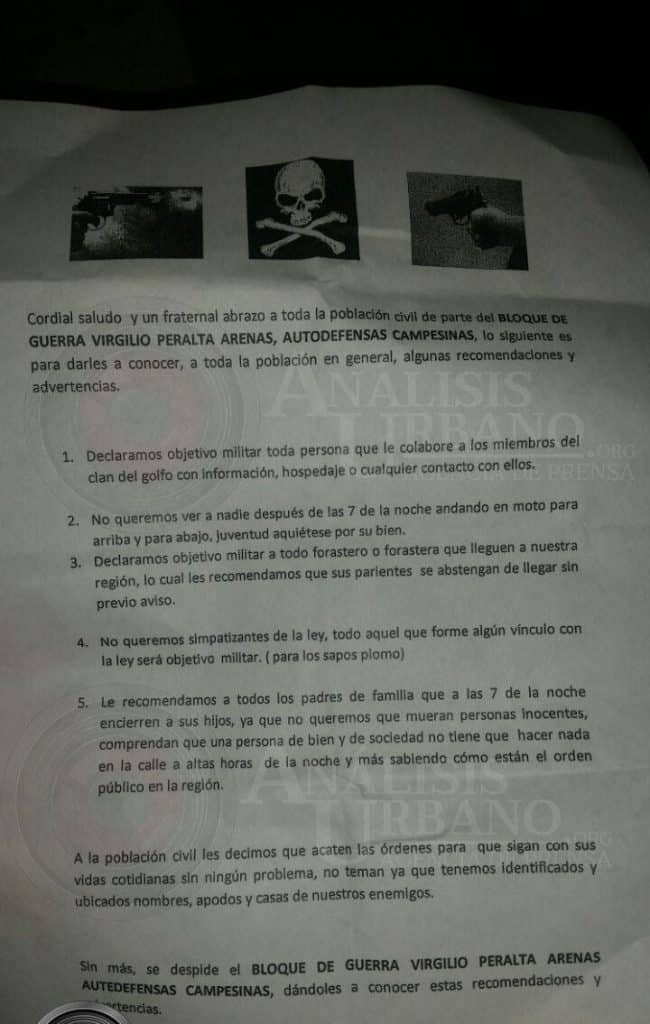
Heartfelt greetings and a fraternal embrace to the entire civilian population from Bloque de guerra virgilio peralta arenas, autodefensas campesinas. This message is addressed to the entire population as a recommendation and a warning.
1. Everyone who works with Clan del Golfo members, anyone who hosts them, gives them information or has any other contact with them will be our targets.
2. After seven o’clock in the evening, we do not want to see anyone riding a motorcycle to the upper or lower part of the settlement. Youth, if you wish yourself well, keep quiet during this time.
3. All foreigners coming to our area will be targets of our soldiers, and we recommend their hosts to notify us in advance of any new arrival of an alien in this area.
4. We do not want sympathizers of the law here (op. Cit. Police, municipalities, governments), all those who have any connection with government institutions will be targets of our army.
5. We recommend all parents in families to lock their children in the house after seven in the evening, as we do not want innocent people to die. Let parents understand that the good people of this society have nothing to do in the late hours on the streets and that they understand what public order is in this region.
We are telling the civilian population to follow these instructions. They can go on with their daily lives without a problem, not to be afraid because we have already identified the names, nicknames, and houses of our enemies.
Who issued the notice in Riosucio
The announcement was issued by a group that declares itself to be ‘self-defense of farmers’ (autodefencas campesinas), but in reality these are paramilitaries whose main business is the production and distribution of drugs.
If I go back 23 years, that is, to 1997, and explain how it all started, it will be easier for you to understand it all.
In the past, guerrillas dominated the Chocó region . These were self-proclaimed revolutionaries who acted politically on the surface (as extreme leftists for the liberation of Colombia), but in reality ignited unrest in many cities and communities, especially in this part of Colombia. Above all, they distributed drugs and sold it to Panama, Ecuador and the United States.
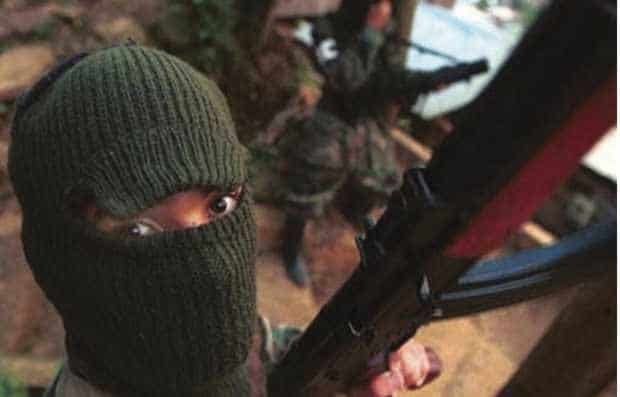
That year, the Colombian government, after failing in any way to negotiate peace with the guerrillas, declared war on these armed extremists and sent thousands of troops to fight them in the rainforests of Colombia where they were present.
The clashes were fierce, people living in these areas found themselves between two fires, there were many casualties among civilians as well.
Apostates
The state army weakened over time as generals, colonels, and soldiers withdrew from it. They illegally began to create their own military groups (paramilitaries) and form alliances with drug cartels. This created groups such as Las FARC and later ELN, which took complete control of the territory in many places.
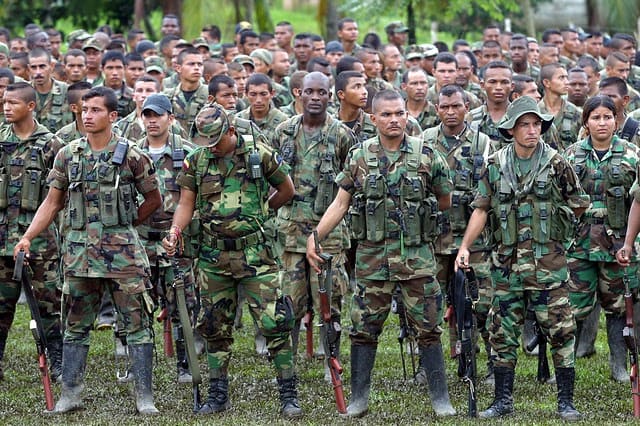
The state thus had more than one enemy at a time. In addition to the guerrillas, it also fought with paramilitaries, who were a much more demanding opponent – professional soldiers trained in state military structures.
So the war continued, only there were many more armed groups, and therefore the pressure on the civilian population was so much greater. Paramilitary groups took on different names, most often posing as self-defense measures for farmers.
The people in these areas were mostly farmers, but many of them switched to paramilitary and were paid well in return, especially young men. During the day, they held rakes and hoes in their hands, and during the night, armed men patrolled the settlements, supervised people and assisted paramilitaries in drug deals.
When one leaves, the other comes
In the municipality of Riosucio, control was taken over by the Las FARC paramilitary group. In 1997, the State Army clashed with them in an organized military operation, which had dire and devastating consequences for the people, especially those living in the surrounding communities on the other side of the Altrato River.
People had to leave their homes and relocate, thousands migrating to the main settlement of Riosucio during this time. The majority of the local population are migrants who once had to flee their villages – Afro-Colombians and Indigenous Indians.
In 2014, the Colombian government managed to negotiate with Las FARC and reach a truce. Las FARC disbanded at the time, but was replaced by another ELN paramilitary group, which is even more bloodthirsty than its predecessor.
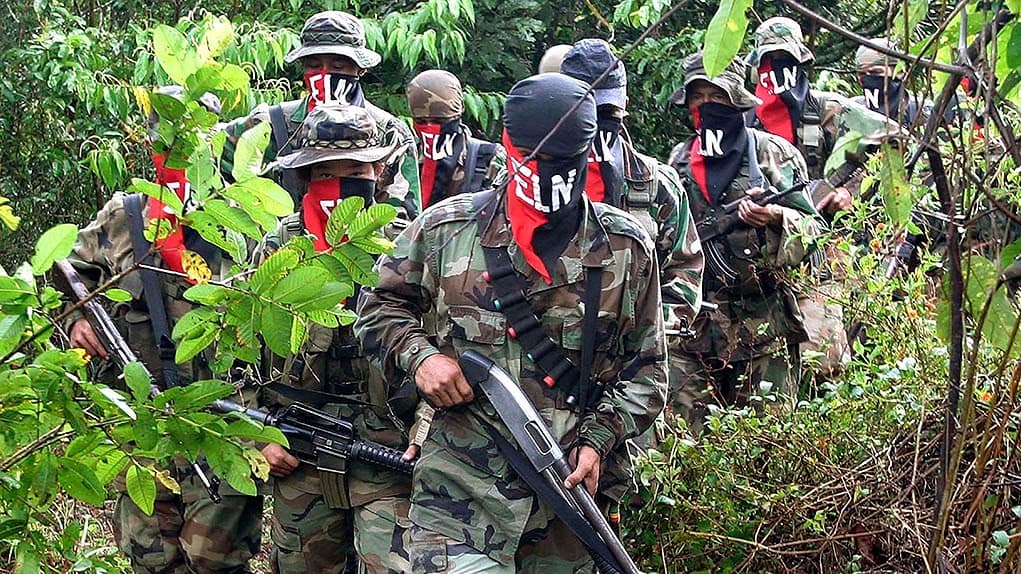
So the fighting is still going on, and in the process, new groups of paramilitaries are emerging, dominating different areas – and fighting each other as well. The situation is very complicated and tense.
Paramilitaries is a threat to everyone
Back to the announcement:
In the five points of this conflicting message, one of these groups sows fear among the people and thus consolidates its power and control over the city and the people.
In the first point, it threatens another bloodthirsty paramilitary drug gang (Clan del Golfo), while in the other points it addresses virtually all people living in Riosucio.
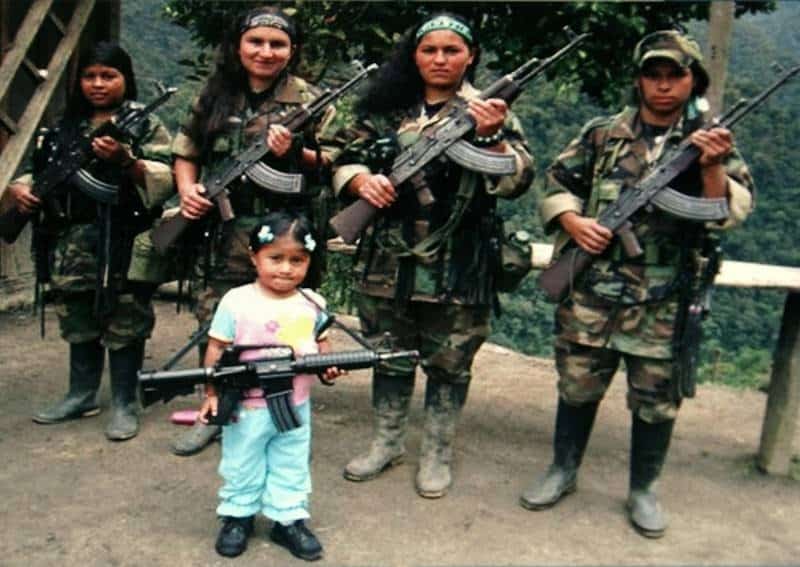
The third point, which concerns foreigners in the city, was particularly impactful for us. There aren’t many foreigners in the city, we may even be the only newcomers at the moment – and “gringos” on top of that. The fact that we are white may or may not be good – depending on how the paramilitaries interpret our presence in Riosucio.
A group of volunteers
That day we went to the house of culture (Casa de la cultura), which has a special role in the village. The municipality has opened a house with the aim of young people consolidating their tradition, especially through music and theater.
They invited us there because they wanted to play some traditional songs for us and we of course responded with the greatest joy.
At the time, there were also volunteers in the house who came to Riosucio from a neighboring town as part of a Colombian NGO to help poor youth.
We were kindly received and greeted, but we could make out the fear in their eyes. They, too, found themselves in one of the points of the proclamation. They told us that the announcement worries them and that they don’t know what exactly they can expect in the coming days.
At seven, no one outside
The mood was discharged by the youngsters as they played their instruments. They sang about peace, about a life without war – in their own very original way that moved us.
As we watched them sing and play, we felt how important music was to them. In a city trapped in the clutches of terrorists and drug cartels, music is perhaps the only channel through which they can release their anger, frustration, and distress.
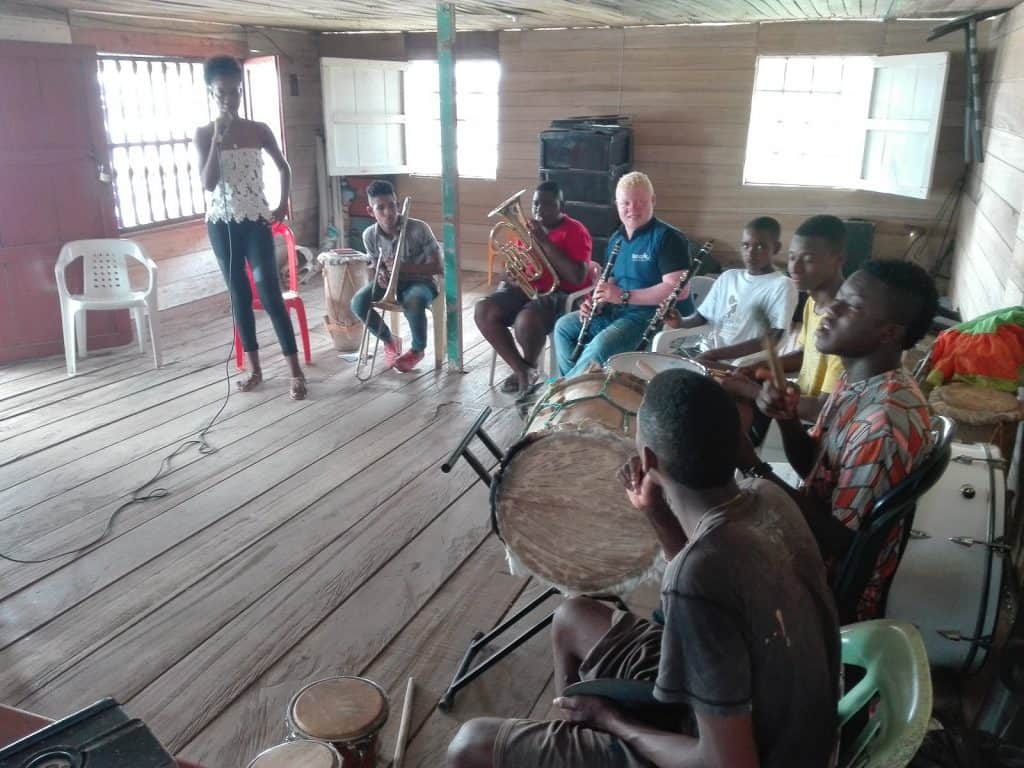
At seven o’clock the square in front of the mission was completely emptied. It was clear why. The proclamation reached everyone and no one dared to risk their lives.
Although there was no one in the square that evening. After seven o’clock the shops were closed and the streets emptied, even though Riosucio had become a ghost town, this silence told its own story.
Trembling for life
We all know what fear means. Each of us feels it from time to time. We can be afraid of so many different things: we are afraid to lose our jobs, we are afraid of illness, we are afraid of the unknown, we are afraid of migrants, we are afraid of our future.
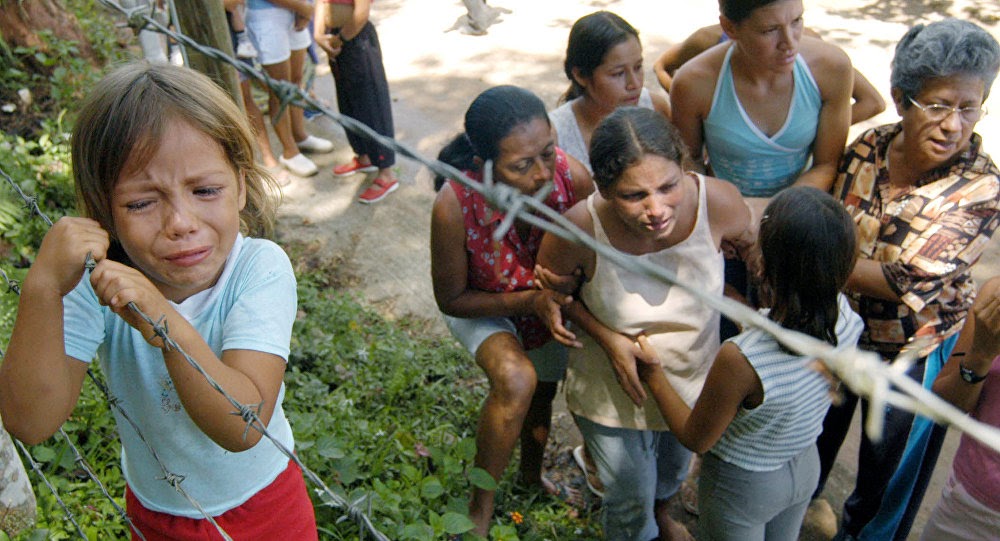
But the fear that people live with in Riosucio is the fear for their lives from the paramilitaries. Every day and every moment. They never know if they will survive another day. And, although they live in poverty and can often afford only one meal a day, they would certainly replace that meal of fish and rice for freedom, peace, and greater security.
